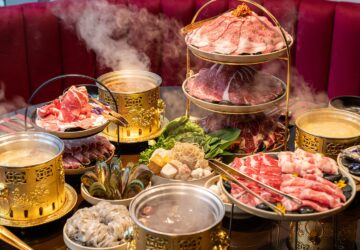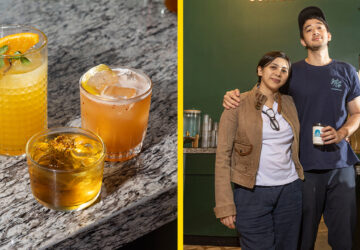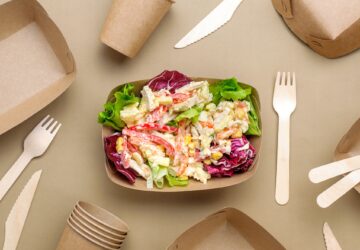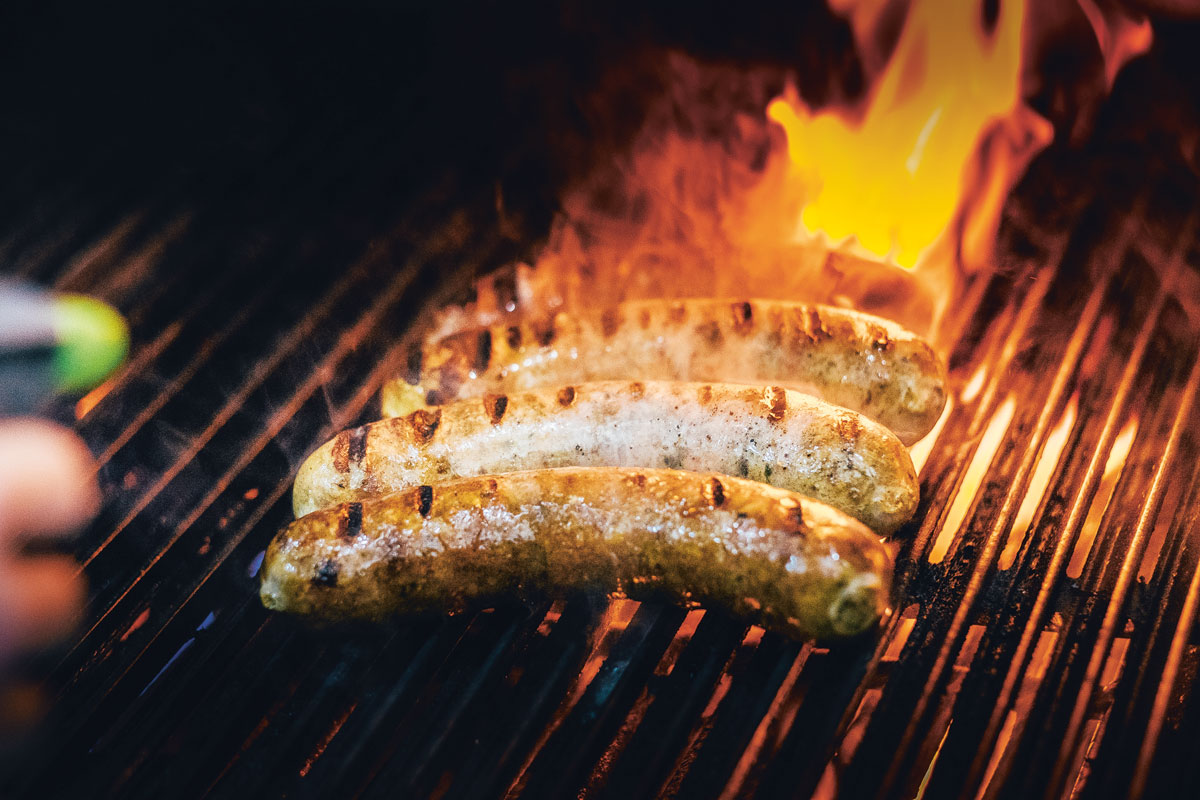Sausages may be synonymous with hotdogs during childhood, but there’s more to these tasty meats beyond shades of red—paler, thicker, and far tastier sausages bearing names too hard to pronounce due to their European roots.
Globalism has given way to realizing new textures in diverse cuisines, and the artisanal sausage is no exception. Whether the methods cling to the good old ways or give space to new and wilder variations, local artisanal sausage-makers have upped the ante when it comes to quality.
The classic: Earle’s Delicatessen

With the latest branch opening in Esteban Abada in Loyola Heights, Quezon City, Earle’s Delicatessen has launched seven outlets locally within a decade. Around 300 to 500 kilos of sausage are made in the manufacturing plant in Taguig in a day before making their way to frequent customers through the stores. “We get expatriates, mothers, and even a chef who comes by once or twice a week,” owner Earle Lim says.
Earle’s Delicatessen aims to change the idea that tasty sausages are a luxury, as Lim observed when he moved to Manila from Canada. After learning about the process of making sausages from his father’s German friend, Lim decided to bring European sausages that wouldn’t put a hole in a regular consumer’s wallet to local shores. “The first thing we look for is the quality of the meat,” Lim says.
The sausages at Earle’s Delicatessen come from locally sourced meats encased in hog skin or sheep casings. The meats are grounded with spices, smoked for 45 minutes to an hour, steamed for another hour, and cooled for one more. The range of sausages includes black forest ham, roast beef, Thüringer Bratwurst, and beef pastrami at P90 to P150 per sausage. Bestsellers include the Hungarian and Bavarian Cheese.
The traditionalist: Poco Deli
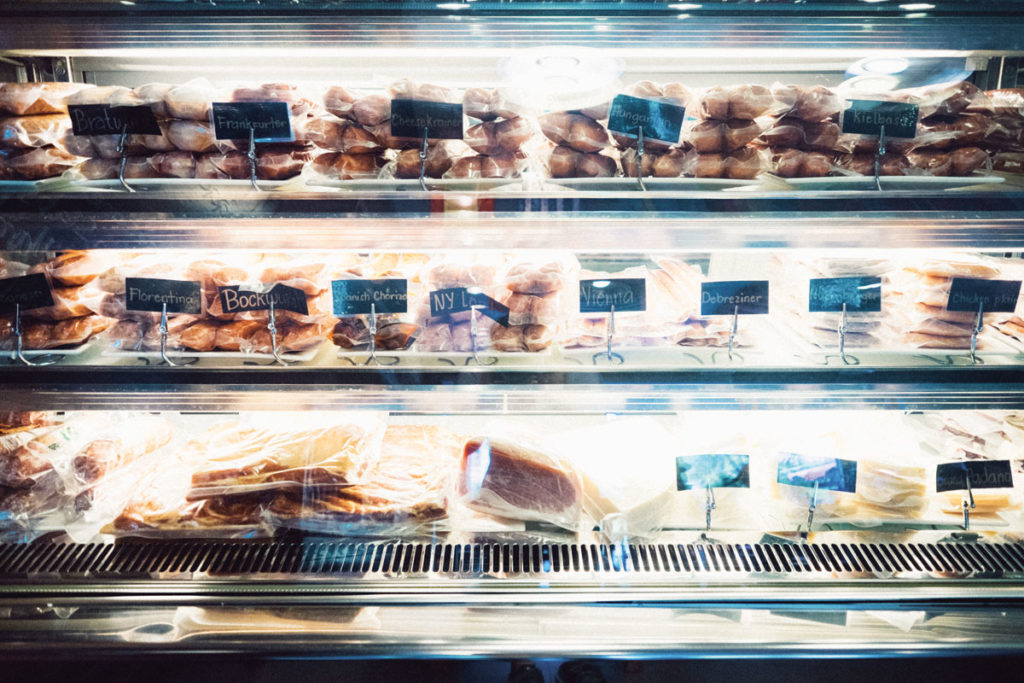
With locations in Kapitolyo and Ayala Triangle Gardens in Makati, Poco Deli follows the German, Italian, and Spanish traditional process of sausage-making in which small batches—exactly 10 kilos per batch—are cooked over a wood-fired brick oven.
Prime cuts from the United States, Australia, and New Zealand are ground with mixed spices from international sources, stuffed into lamb or pork casings, then smoked in a wood-fired brick oven for six to eight hours. Each batch is tasted and approved by the owner, Sonny De Leon, who grew up in the world of choice cuts and meats. What began as De Leon selling bacon and sausages to friends ended up as a humble deli that follows its namesake (poco is Italian for “small”). The Kapitolyo branch follows the same hole-in-the-wall design as delis in Europe.
“I started learning how to make bacon, ham, and breakfast sausage when I was 12 years old in my father’s ranch in the South,” De Leon says. “We continue to learn and be mentored in sausage-making and charcuterie from butchers in Spain, Italy, and Napa Valley.”
Poco Deli’s kielbasa, for example, follows the same process as the one from Katz’s Delicatessen in New York. De Leon takes pride in calling Poco Deli’s way of making sausages “purist.” “We follow the slow traditional methods used for more than a thousand years; some of our recipes are more than a hundred years old.”
Poco Deli currently has 26 varieties of sausages free of any preservatives or nitrates (as De Leon’s eldest son is allergic to them). De Leon encourages people to consume their sausages the European way: paired with wine or a bottle of cold beer.
The innovator: Spice & Cleaver
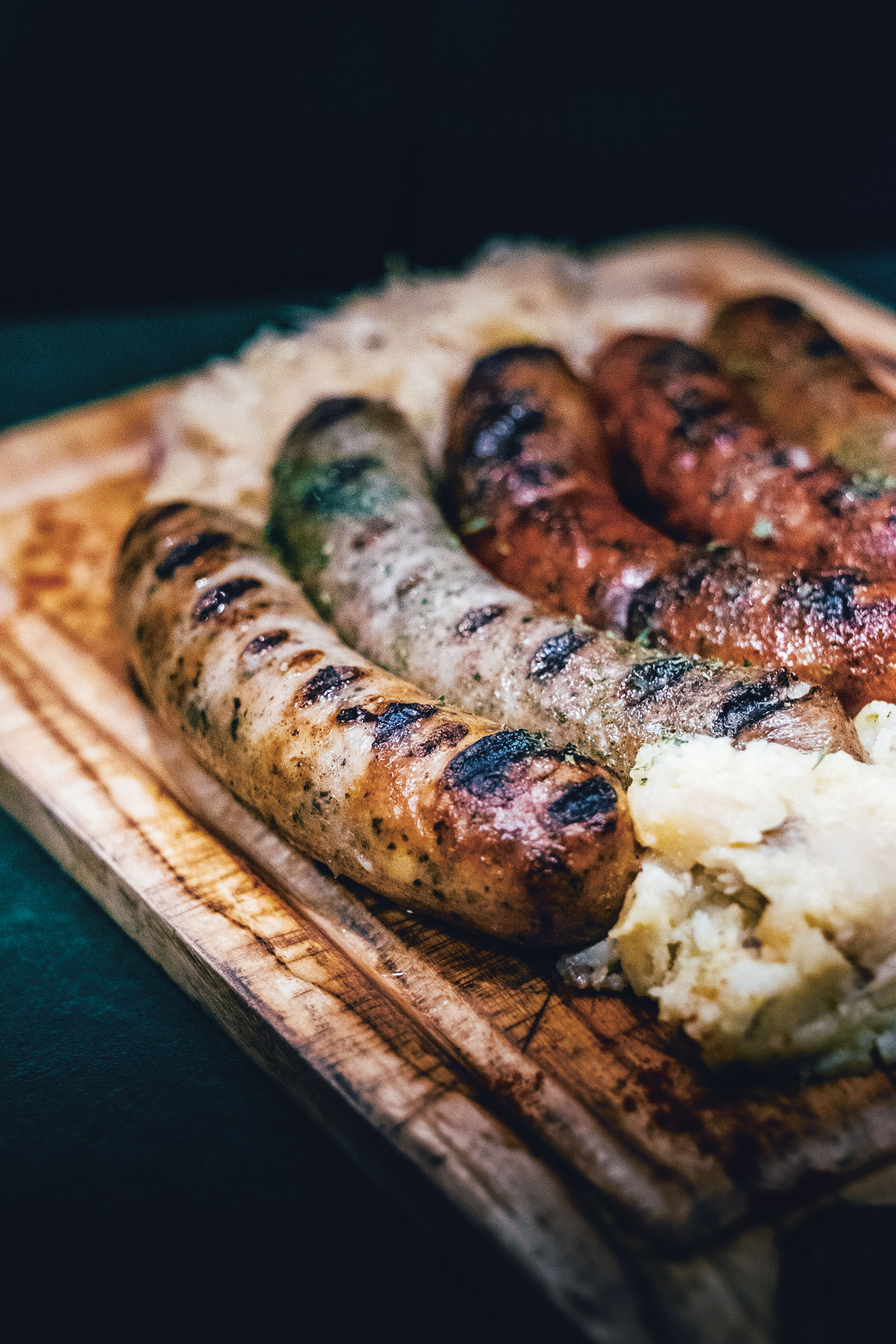
Located on the ground floor of Estancia Mall in Kapitolyo, Spice & Cleaver is a fairly new food joint that serves artisanal sausages. Behind Spice & Cleaver are the Jose brothers of Brothers Burger fame, and at its helm is chef Miguel Gianan, who began as one of the apprentices of German butcher Michael Beck of the old Mickey’s Delicatessen.
The sausages in Spice & Cleaver are divided into “traditional” and “artisanal.” The former includes the nürnberger, debrizener, and kielbasa, while the latter reveals Gianan’s penchant for the non-traditional: “The Mexican” is a smoked pork sausage with cilantro, sun-dried tomatoes, and chili while “3 Lil’ Pigs” is a combination of bratwurst, diced chorizo, and smoked bacon.
(Editor’s note: Spice & Cleaver is permanently closed)
Originally published in F&B Report Vol. 13 No. 3
